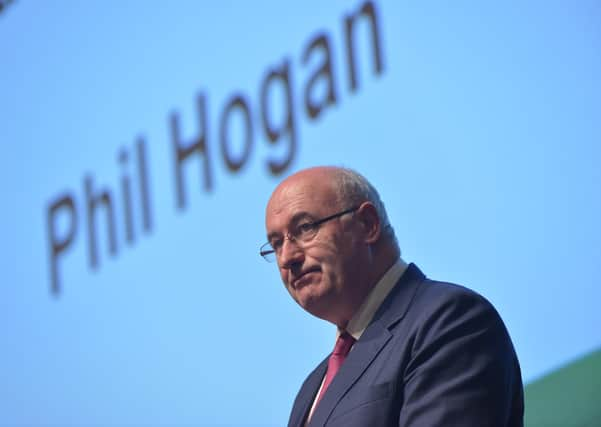BRUSSELS NOTEBOOK: Fallout from ‘Golfgate’ is enormous


Phil Hogan, now the former EU trade commissioner, has lost one of the Commission’s high profile jobs – a job made all the more high profile by Brexit.
A few weeks ago he was in the running to head the World Trade Organisation, before deciding to stay where he was. Today he has become another loser from a game of golf that broke records for arrogance and for the political fallout that followed. Hogan’s fate was entirely his own fault and his political career is now in ruins.
Advertisement
Advertisement
Hogan was popular and effective when he was farm commissioner. He delivered for farmers across the EU, driving fairness in the food chain into legislation. He did not have much of a chance to shine at trade, but again he was seen as effective and committed. However none of that could save him. At one point he looked on course to escape the loss of his post, but it was the European Commission president, Ursula von der Leyen who decided his fate. She was not impressed with his excuses and he was left with no option other than to resign. For taking that tough decision she deserves credit. Decisive action is a lesson Boris Johnson could learn, given that he appears incapable of sacking even the most hapless of his ministers, as has been proved by the fiasco surrounding exam results in England.
A key question now is whether farmers will lose out from Hogan’s departure. Here Brexit has made that less of an issue, but Hogan was a pragmatist and that would have been useful when Brexit moves from politics to the detail of a trade deal. For farmers in the EU-27 there is no question his deal making abilities will be missed. But that ship has sailed and the Hogan political career, which took him into the Irish government and on to one of the highest profile jobs in Europe, is now over. The focus now is on a replacement, but the Irish government cannot send a high profile politician to Brussels if the price is a by-election. Technocrats are being discussed as a possible replacement for Hogan, but whatever happens Golfgate brought about the end for a consummate deal maker.
The UK government announced this week that it would fine big companies that failed to counter global deforestation. It has told them to clean up their supply chains, so that they do not use products, such as a palm oil, from areas that were once rainforests. This sounds worthy, although the plan is short on detail. However it is hard to see how this squares with giving the farming industry a toothless trade commission instead of legislation to protect food standards. Some globally traded food is not only the product of deforestation, in the case of Brazil, but the product of poor animal welfare, doubtful hygiene and significantly lower standards for social conditions. If there is a case for fining companies over deforestation there is a stronger case for banning cheap food imports.
Despite that cynicism, farmers may see merit in tackling deforestation and it is certainly a challenge to the Brazilian meat industry. In theory this puts environmental organisations, such as Greenpeace, and the farming lobby on the same page. However there are dangers in assuming your enemy’s enemy is automatically your friend. Greenpeace and others are putting pressure on major retailers and fast food operations to ban imports from countries guilty of poor practice in rainforests. That is encouraging, but the green lobby is not interested in alternative supply sources. What they want is a commitment to using less meat and more plant based alternatives.
Advertisement
Advertisement
If that is their real agenda they can never be on the same page as the farming lobby. This is not only about forests being cleared for meat production and palm oil. Soya is also a target and while the United States is now the biggest supplier to the EU, Brazil is still a major supplier.
Any threat to the supply or price of soya imports would be a threat to the livestock industry across the EU. As a political gesture this made good headlines for the government, but the full implications are poorly thought out. We need considered, balanced judgements. A government seeking to spread some environmental fairy dust to distract from other problems is not a basis for policy.